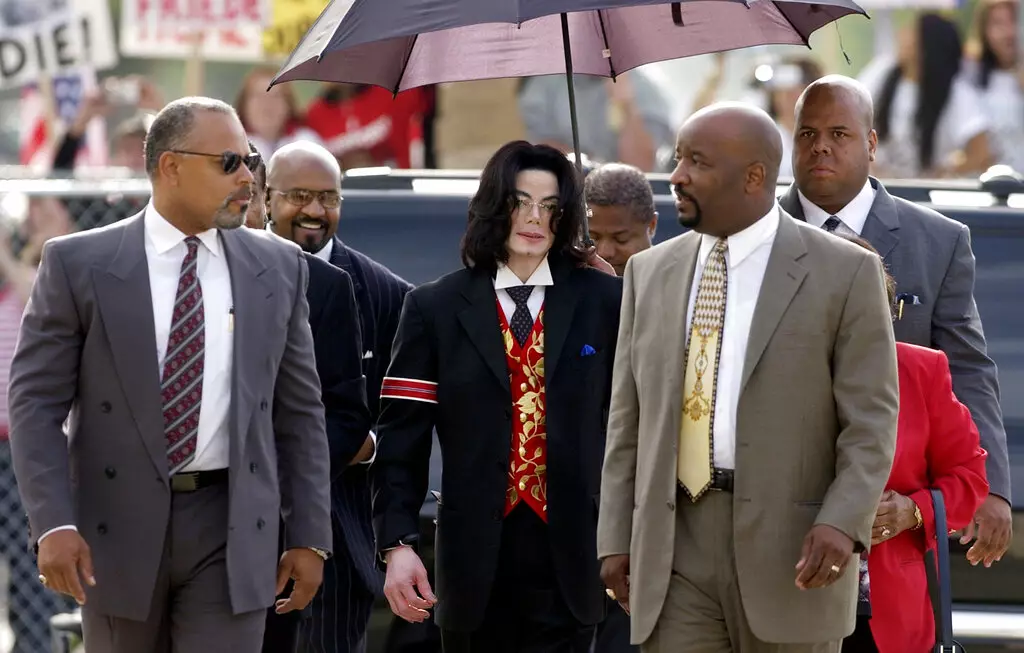Michael Jackson, an artist whose influence transcended genres, was not only known for his music but also for the controversies that often surrounded his life. A forthcoming documentary series set to air on Channel 4, titled *The Trial of Michael Jackson* (working title), aims to shed new light on this enigmatic figure, specifically focusing on the high-profile criminal trial he faced in 2005. The series promises to explore not only the legal battles concerning allegations of child molestation but also Jackson’s tumultuous relationship with fame and the media. By including never-before-heard testimonies from various contributors, the series positions itself to offer contemporary audiences a comprehensive understanding of Jackson’s legacy, intertwining his global stardom with the scrutiny and scandal that marked his career.
The 2005 trial, where Jackson was accused of molesting Gavin Arvizo, who was only 13 at the time, captivated the media and public alike. The case brought forth a dual narrative; one that described him as an alleged predator and another that depicted him as a victim of sensationalism. Jackson’s eventual acquittal left lingering questions about media bias and the court of public opinion. The Channel 4 series seeks not only to recount the events surrounding the trial but also to examine how the media’s portrayal of Jackson contributed to shaping societal perceptions of celebrity and accountability in the wake of serious allegations.
Following the trial, Jackson remained an object of fascination and scrutiny, particularly highlighted by HBO’s *Leaving Neverland,* which revisited allegations made by two other men. This documentary became one of the network’s most viewed shows, demonstrating the complex dynamics between public sentiment and media narratives. The impact of such portrayals raises significant questions: to what extent should media contribute to the reevaluation of a public figure’s legacy? The upcoming series could therefore serve as a pivotal moment, highlighting not just the specifics of Jackson’s case but also broader themes concerning media ethics and the responsibilities that come with it.
In conjunction with media discussions surrounding sensitive topics such as abuse, there has been a substantial shift in the entertainment industry regarding scene intimacy. The Broadcasting Union Bectu has recently launched the UK’s first registry for intimacy coordinators, a response to the growing recognition of the importance of safeguarding performers during emotionally charged scenes. Following the #MeToo movement, intimacy coordinators have gained traction, offering support in various productions. Instances seen in successful series like *Normal People* and *I May Destroy You* underscore their pivotal role.
Bectu head Philippa Childs emphasized the significance of this registry, stating, “Intimacy coordination provides vital support for artists during the preparation, rehearsal, and shooting of intimate action.” The formal recognition of intimacy coordinators is a critical step in ensuring that actors are respected and feel safe while performing sensitive material.
As the conversation around media representation grows, the BBC has also announced strides in expanding the scope of storytelling through its first high-end Gaelic drama, *An t-Eilean (The Island).* Set to premiere in early 2025, the series intertwines English and Gaelic dialogue, reflecting the cultural richness of the western Isles of Scotland. Starring Sagar Radia and Sorcha Groundsell among others, this production not only showcases a blend of renowned and emerging talent but also represents a commitment to authentic storytelling within minority languages.
This ambitious project underscores a growing trend in the industry where diverse narratives are increasingly prioritized, resonating with audiences that seek representation and inclusivity in media.
As these new projects unfold, they reflect a vital juncture where the legacy of artists like Michael Jackson intersects with evolving media practices and cultural accountability. Both *The Trial of Michael Jackson* and the push for intimacy coordinators signal a broader consciousness within the industry. Through reflective narratives and progressive practices, these initiatives strive to reshape the discourse around fame, responsibility, and artistic integrity in an ever-evolving media landscape.


Leave a Reply